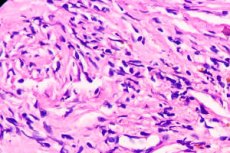
当你松开赛车的刹车时,它很快就会撞车。巴拉克·罗特布拉特博士想对脑癌细胞做类似的事情:关闭它们在葡萄糖耗尽时的存活能力。他的目标是加速肿瘤细胞的生长,使它们也能以同样快的速度死亡。这种治疗脑癌的新方法基于他实验室十年的研究。
新发现
Rotblat 博士、他的学生以及杜塞尔多夫大学医院神经病理学研究所的联合首席研究员 Gabriel Leprivier 上周在《自然通讯》杂志上发表了他们的研究成果。
迄今为止,人们认为癌细胞的主要目标是生长和快速繁殖。然而,研究表明,肿瘤中的葡萄糖含量低于正常组织。
如果癌细胞完全专注于快速增殖,它们应该比正常细胞更依赖葡萄糖。然而,如果癌细胞的绝对优先事项是生存,而不是指数级增长呢?那么,在葡萄糖供应不足的情况下触发生长可能会导致细胞耗尽能量并死亡。
个性化医疗的前景
“这是我们经过十年研究后取得的激动人心的发现,”Rotblat博士解释说。“我们可以在不影响正常细胞的情况下,专门针对癌细胞,这将是迈向个性化医疗和像化疗和放疗那样绕过健康细胞的疗法的重要一步。”
他补充道: “我们对葡萄糖缺乏和抗氧化剂作用的发现,为开发一种能够治疗神经胶质瘤(脑癌)的分子打开了一扇治疗之窗。” 这种治疗剂也可以应用于其他类型的癌症。
研究及其结果
Rotblat和他的学生Tal Levy博士和Haula Alasad博士首先提出了一个假设:细胞会根据可用的能量来调节生长。当能量充足时,细胞会积累脂肪并合成大量蛋白质来储存能量并生长。当能量不足时,细胞必须停止这一过程,以避免能量耗尽。
肿瘤通常处于葡萄糖缺乏状态。研究人员已经开始寻找能够使癌细胞在葡萄糖缺乏的情况下生存的分子“刹车”。如果能够关闭这些分子,肿瘤就会死亡,而未缺乏葡萄糖的正常细胞则不会受到伤害。
MTOR通路和4EBP1的作用
Rotblat和他的团队研究了mTOR(哺乳动物雷帕霉素靶蛋白)通路,该通路包含测量细胞能量状态和调节细胞生长的蛋白质。他们发现,mTOR通路中一种名为4EBP1的蛋白质在能量水平下降时会抑制蛋白质合成,而这种蛋白质对于人类、小鼠甚至酵母细胞在葡萄糖缺乏时的生存至关重要。
他们证明,4EBP1通过负向调节脂肪酸合成途径中关键酶ACC1的水平来实现这一点。癌细胞,尤其是脑癌细胞,正是利用这种机制在肿瘤组织中存活,并形成侵袭性肿瘤。
开发新治疗方法
Rotblat 博士目前正与 BGN Technologies 和内盖夫国家生物技术研究所合作开发一种可以阻断 4EBP1 的分子,当葡萄糖耗尽时,这种分子会使缺乏葡萄糖的肿瘤细胞继续合成脂肪并耗尽其资源。

